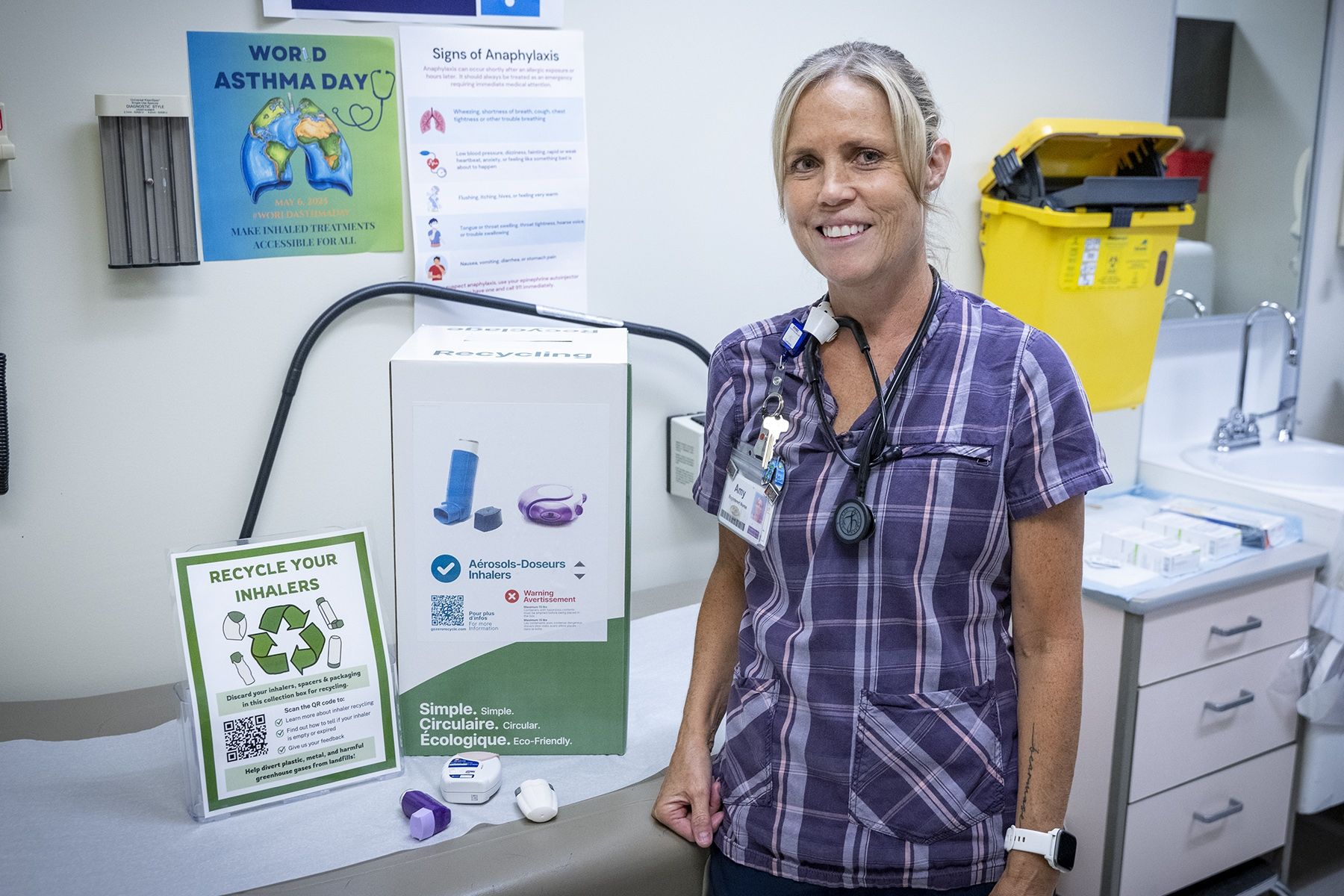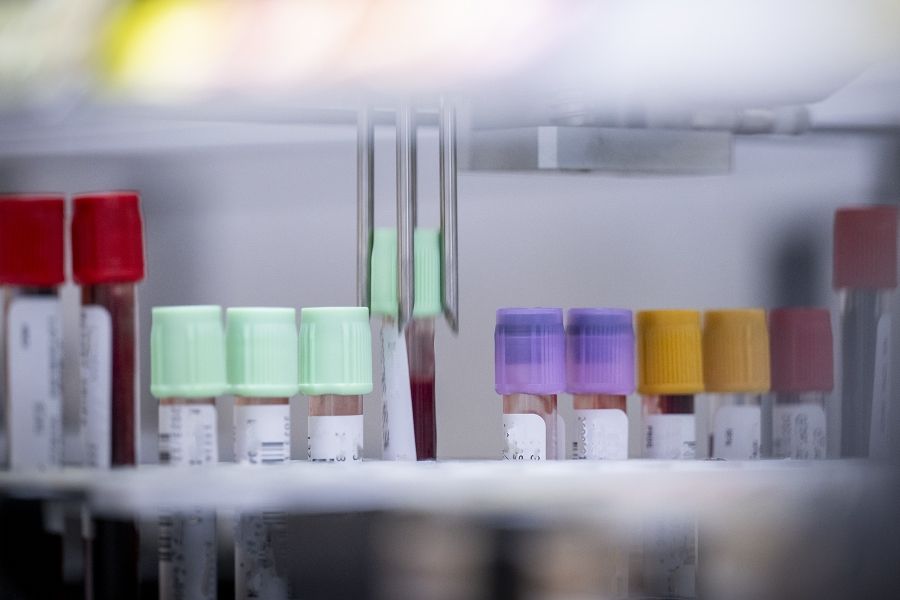
Kingston Health Sciences Centre (KHSC) has launched a brand-new inhaler recycling program that is already having a positive impact on the environment.
The new sustainability initiative – Go Zero Inhaler Recycling program - has seen Go Zero boxes placed at various high traffic locations at both the Hotel Dieu Hospital (HDH) and Kingston General Hospital (KGH) sites to support the proper disposal and recycling of used inhalers and their related components.
The recycling boxes accept inhalers, mouthpieces, actuators, canisters, caps, spacers and valves. Within the first 10 weeks of the program, 51lbs - or upwards of 400 inhalers have already been diverted from waste facilities.
“This new initiative focuses on climate sustainability and environmental responsibility of our organization,” shared project lead Dr. Geneviève Digby, Medical Director – Patient Safety, Quality, and Clinical Risk and Physician Quality Committee Chair. “Given that climate change has negative impacts on population health, this initiative promises to reduce KHSC’s impact on climate change and contribute to the health of our community.”
With the support of physician champions in each department, the program is an important step towards improving KHSC’s environmental impact. Still in its infancy, the program has already received great participation from staff and patients.
For Amy Mussell, a registered nurse and certified respiratory educator in the Asthma Biologic Injection Clinic - the outpatient clinic that supports patients with severe asthma, having a formal recycling program for inhaler and related components is a breath of fresh air for her team.
“The Go Zero Inhaler Recycling program benefits the environment - and what better place to promote it than an asthma clinic where all patients have inhaler devices,” shared Mussell.
Patients in the clinic use on average two-to-five inhalers at a time, so the impact of the recycling program is a significant shift.
“It gives our patients the opportunity to help the environment and also know the devices will be recycled properly. Before the recycling boxes started, patients tell me they would either throw them in the garbage or take them back to the pharmacy. Some even had drawers and baskets full of old expired, used and unused inhalers at home,” she said. “Now with the Go Zero Recycling program patients can read about how the inhalers will be recycled properly and the benefits it brings to the environment.”
Supported by Go Zero, the program provides a recycling certificate that confirms the weight of the materials recycled and diverted from landfill – certifying KHSC’s zero-waste efforts.
“We’re encouraged by the momentum the program is seeing to date, and we encourage all patients and visitors to either site to bring in their used inhalers on their next visit to take advantage of the program,” added Dr. Digby.
The recycling boxes can be found at HDH in the clinic that supports patients with allergies, respirology and Cystic Fibrosis, as well as the Pulmonary Function Laboratory, and at the asthma education unit at KGH.



